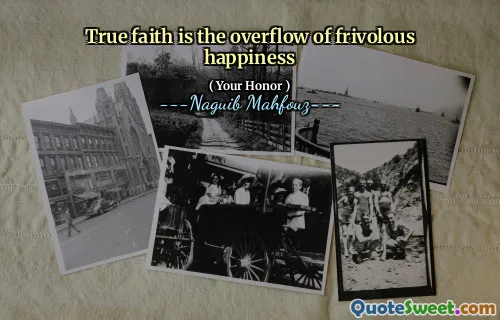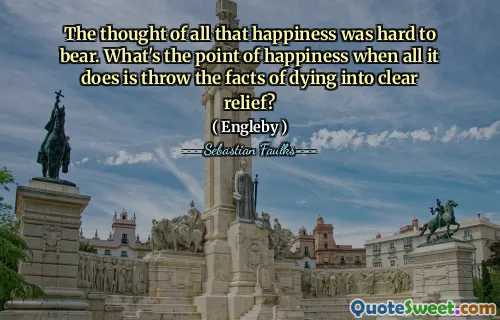
How happy is the blameless vestal's lot! The world forgetting, by the world forgot.
The quote by Alexander Pope captures a profound reflection on happiness and innocence. It portrays the "blameless vestal"—a symbol of purity and untainted virtue—as embodying a unique state of bliss. The vestal, historically a priestess committed to chastity and service, lives removed from the entanglements of worldly concerns. In Pope's verses, happiness arises not from active engagement or recognition, but rather from the serene oblivion of being both unaware of the world's chaos and overlooked by it. This suggests a paradox where true contentment might lie in a form of peaceful isolation or detachment.
This resonates deeply in a modern context, where incessant connectivity and the need for social validation have become ubiquitous. The quote invites us to contemplate the value of innocence and the power in being unburdened by societal judgment or external expectations. It also subtly reminds us that anonymity or invisibility from the public gaze is not necessarily a negative state but can be a protective cloak that sustains happiness and purity. However, it challenges us to consider what we sacrifice with such detachment—perhaps interaction, recognition, or the opportunity to influence.
Ultimately, Pope's lines urge a measured balance, recognizing that contentment may occasionally be found beyond the spotlight—in the tranquil acceptance of a "blameless lot," where one lives untroubled by the world’s pressures. It is a timeless meditation on happiness, virtue, and the sometimes overlooked peace that comes not from triumph or fame, but the gentle forgetfulness of the world itself.











